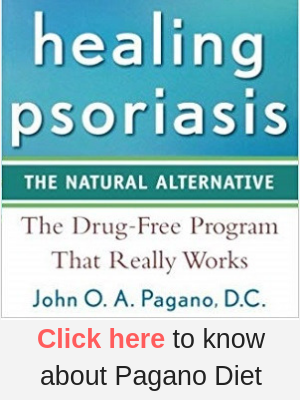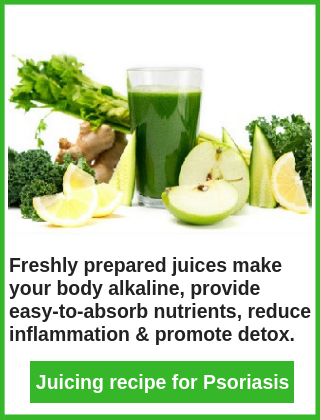Benefits of flaxseeds for psoriasis are acknowledged by The National Psoriasis Foundation. Flaxseeds can provide you omega 3 fatty acids, dietary fibers, lignans and other vital vitamins and minerals. A restricted psoriasis diet, positive lifestyle and use of dietary supplements like omega 3 fatty acids and vitamin D can help you heal psoriasis.
What are Flaxseeds
Flaxseeds, also known as linseeds, are plant seeds and considered as a super food by various health experts. Flaxseeds contain essential omega 3 fatty acids, dietary fibers and various other nutrients. Flaxseeds can be either brownish or golden in color; color doesn’t have any impact on nutritional content of seeds.
Benefits of Flaxseeds for Psoriasis
Let us dig down a little to know about various nutrients contained in flaxseeds and how they can help help psoriasis
- Omega 3 fatty acids
Omega 3 fatty acids are essential fats which boost your body immunity, nurture your skin and most importantly, they are anti-inflammatory in nature. These are known as essential fats because your body can’t synthesize them by its own and you need to depend on external dietary resources to make up for them.
Apart from reducing inflammation, omega 3 fats nurture the cell membranes of your skin with essential fats to make your skin moist and soft and retain necessary water in your skin cell membranes. These fats opens blocked pores in your skin cells to facilitate detoxification of your body.
Before discussing about the benefits of omega 3 and flaxseeds, let us understand this inflammation thing in brief.
Psoriasis is characterized by chronic inflammation. Arachidonic acid is a polyunsaturated omega 6 fatty acid which encourages inflammation in your body. Arachidonic acid is found mainly in margarines, vegetable oils, processed foods, junk foods and bakeries.
Here, it is interesting to note that omega 6 is pro-inflammation and on the contrary, omega 3 reduces inflammation.
The ideal ratio between omega 3 to omega 6 is 1:2 to 1:4. But, these days, this ratio goes as high as 1:20. The reason being- modern day diets are rich in vegetable oils and processed and junk foods.
To reverse the condition, we have to take more of omega 3 resources in our diets. Plant sources of omega 3 are flaxseeds, walnuts, hempseeds and green vegetables. Animal resources are mainly various varieties of fish.
There are mainly three essential omega 3 fatty acids:
1. Alpha-linolenic acid (ALA) – Most of the plant foods (including flaxseeds) provide ALA. ALA doesn’t have much health benefits. Its benefits are mainly derived from its ability to get converted into EPA and DHA. About 10-15% of ALA can get converted into EPA and DHA.
2. Eicosapentaenoic acid (EPA) – EPA reduces inflammation in the body. EPA is provided by fish oil. Plant foods don’t provide EPA.
3. Docosahexaenoic acid (DHA) – DHA is responsible for improved nervous system and brain functioning. Just like EPA, DHA is also provided by fish oil. No plant food provides DHA.
Flaxseeds are the best plant based food to provide omege 3 fats in the form of ALA. In fact, flaxseeds are considered as one of the world’s healthiest plant food as far as omega 3 fatty acid content is concerned. Considering the rich quantity of ALA in flaxseeds, they can provide you a decent amount of EPA and DHA also.
- Lignans
Lignans are naturally occurring antioxidants. Powerful anti-inflammatory and antioxidant characteristics of lignans make them beneficial in various serious medical conditions like colon cancer and breast cancer.
Apart from that, lignans do act like phytoestrogens.
What are Phytoestrogens?
Phytoestrogens are plant based compounds which possess anti-estrogenic properties. If a person has high estrogen hormones, then phytoestrogens would compete with them to get attached to receptor sites of body cells and hence lower down the hyperactivity of estrogens. On the other hand, if your body have little estrogens, then these phytoestrogens would make up for them. Ladies during pregnancy and menopause used to experience flaring up in their psoriasis conditions due to over activity of estrogen hormones. In those conditions, this phytoestrogen property of lignans would help a lot in avoiding triggering of psoriasis.
Lignan content in flaxseeds is about 800 times more than other plant sources like wheat.
- Dietary Fiber
About 100 grams of Flaxseeds contain up to 27 grams of dietary fiber. Yes, you read it right…27 grams. Isn’t it amazing. Hence, 2 teaspoonful of flaxseeds (15 grams) a day would provide you approximately 4 grams of dietary fiber.
I think, most of the people here should be aware of the amazing benefits of dietary fiber for overall well being. If we talk about psoriasis, few major benefits of adequate dietary fiber intake are:
- Smooth bowel movement avoiding any chances of constipation
- Weight management (controlling obesity)
- Proper digestion and avoidance of psoriasis triggering situations like hyperacidity, gastric problems, indigestion and bloating
Apart from these 3 major nutrients, Flaxseeds do contain various B complex vitamins, minerals (Magnesium, Manganese, Phosphorous, Copper) and folates in decent amounts.
How to consume flaxseeds
These small seeds can be consumed in three different ways-
- Raw seeds to be chewed directly
- Flaxseeds in powder form (grounded). You don’t need any specialized heavy motored grinder to crush them. A household grinder or blender would do it for you without any trouble.
- Flaxseeds oil. These days flaxseed oil capsules are easily available.
Suspicious about the taste?
Don’t worry, flaxseeds have a tasty nutty flavor.
Which one is the best- Raw Flaxseeds / Flaxseed powder / Flaxseed oil
Flaxseed powder (grounded) is the best way to consume flaxseeds to avail maximum benefits of this amazing power packed seed.
- If you chew raw seeds, then some seeds would enter your gut without breaking down properly. In that case, your already somehow weakened digestive system would need to work some extra miles to digest the outer coating of flaxseeds which is pretty hard to break.
- Similarly, if we talk about Flaxseed oil, it is manufactured by cold pressing of flaxseeds. It is mainly the fat portion of flaxseeds. One teaspoonful of flaxseed oil surely contain more omega 3 fatty acids than the same quantity of flaxseed powder, but flaxseed oil would not be containing other vital nutrients like fiber and lignans in any match to flaxseed powder.
Hence, the best way of taking flaxseeds is consuming them in the powder form. But, it doesn’t mean that chewing raw flaxseeds or taking flaxseed oil capsules are completely useless.
Recommended dosage of Flaxseeds
- Powdered Flaxseeds- Take 1 teaspoonful of flaxseed powder twice a day. Apart from taking in original form, you can sprinkle flaxseed powder on your salad dressings and other food preparations
- Flaxseed oil capsules- 1 capsule of flaxseed oil twice a day is a good quantity.
In few cases, you may experience mild side effects like heartburn, nausea and diarrhea during the initial period. Don’t worry- just lower the dosage for some time and gradually increase the dosage to optimum level.
From where to buy
You can buy Flaxseed products from a departmental store or chemist shop near to you. Otherwise, you can check online.
| USA readers | India readers | UK readers | |
|---|---|---|---|
| Flaxseed powder (grounded) | Click here | Click here | Click here |
| Flaxseed oil capsules | Click here | Click here | Click here |
Fish oil vs Flaxseed oil
EPA and DHA are the main health provider omega 3 fats. Fish oil contains these two omega 3s in plenty. Flaxseed oil doesn’t provide any EPA and DHA in original form. It provides the third omega 3 (ALA) in handsome amount. 10-15% of these ALA can be converted into EPA and DHA. This percentage is less for Elderly people and people with reduced body metabolism.
If consumed in the same quantity, fish oil would provide EPA and DHA as high as seven times than flaxseed oil.
Hence, fish oil is a clear winner here. But, if you are a strict vegetarian, then flaxseed oil is the option for you.
In my opinion, you should take 2 fish oil capsules for anti-inflammatory properties and 1-2 teaspoonful of grounded flaxseeds for digestive fibers and lignans.


I use flaxseed daily to assist my digestive system , namely my gall bladder to detox from gallstone attacks.. i have a colonic only yearly, nowadays, and ocassional enemas which i manage ( at 66) to do my self. a pretty limited and basic diet. but i enjoy what i eat and i eat out often, at reasonable bars as well. i had suffered for over 6 years with major attacks and now as i say just have a few linseeds soaked in coconut or almond milk along with raw porrige and usually not much else. to try to lose weight i limit it to about 1 -2 dessertspoons a morning and sometimes with strawberries.
My negbour has been in hospital in Worcester, England for nearly SIX MONTHS ( in my view wasting a hospital bed!) they say they cannot operate on him because he is so inflammed from gall stones.. How Riddiculous when flax and maybe olive oil/ apple juice/lemons could ease the whole thing. I had no operation and hardly any exercise as i am disabled due to knee and leg issues. He is on a permanent drip.. what a drip!